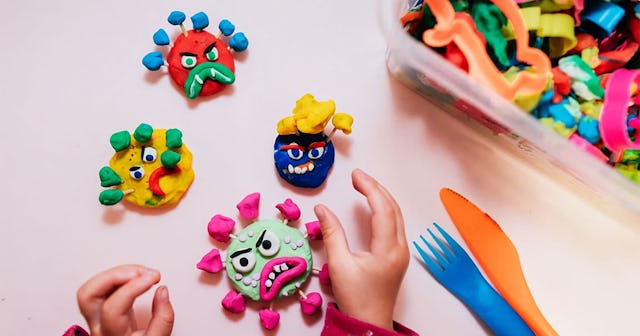7,572 School-Age Kids In Tennessee Have Tested Positive For COVID-19

More than 7,500 Tennessee kids have received positive COVID-19 tests, but sure, let’s open schools in a few weeks
The start of the fall semester is just a few weeks away in many school districts, and the entire U.S. is still fiercely debating whether and how schools can reopen for in-person classes as the coronavirus pandemic rages on. We still don’t have very clear answers on how COVID-19 affects kids, or the role they play in spreading the disease. But we certainly know they can become infected — 7,572 school-aged kids in Tennessee alone have tested positive.
The Tennessee Department of Health posted data about positive tests in kids between the ages of 5 and 18 — so kids who would attend in-person classes if schools were to reopen soon. While the number of kids those ages who have tested positive for COVID-19 is shocking, experts say the real count is actually likely much higher. Since kids tend to have more mild symptoms of the disease, they’re not routinely tested for it, especially amid testing supply shortages. There’s no telling how many school-aged kids have actually contracted the coronavirus.
In Tennessee, just three kids have died from COVID-19. But that’s obviously three kids too many. And regardless of how sick the disease makes kids, we should be concerned about their ability to spread the coronavirus — to their teachers, their parents, their grandparents, essential workers, neighbors, and anyone else they come into contact with who might be vulnerable to a higher-risk infection.
Scientists are still studying the way the virus affects kids, and how they can help spread it to others. A large-scale study in South Korea showed that kids over the age of 10 can spread COVID-19 just as well as adults can. And in Florida, officials recently announced that 31.1 percent of kids who are tested for the coronavirus — nearly a third of them — returned positive results. This tells us that whether they tend to have severe symptoms or not, kids can absolutely catch the virus. And if they have it, they can almost certainly help spread it in their communities.
While the CDC’s guidelines for reopening schools were criticized for their political tone, the American Academy of Pediatrics has spoken against opening schools before it’s absolutely safe to do so.
“Returning to school is important for the healthy development and well-being of children, but we must pursue re-opening in a way that is safe for all students, teachers and staff,” the AAP said in a statement earlier this month. “Science should drive decision-making on safely reopening schools.”